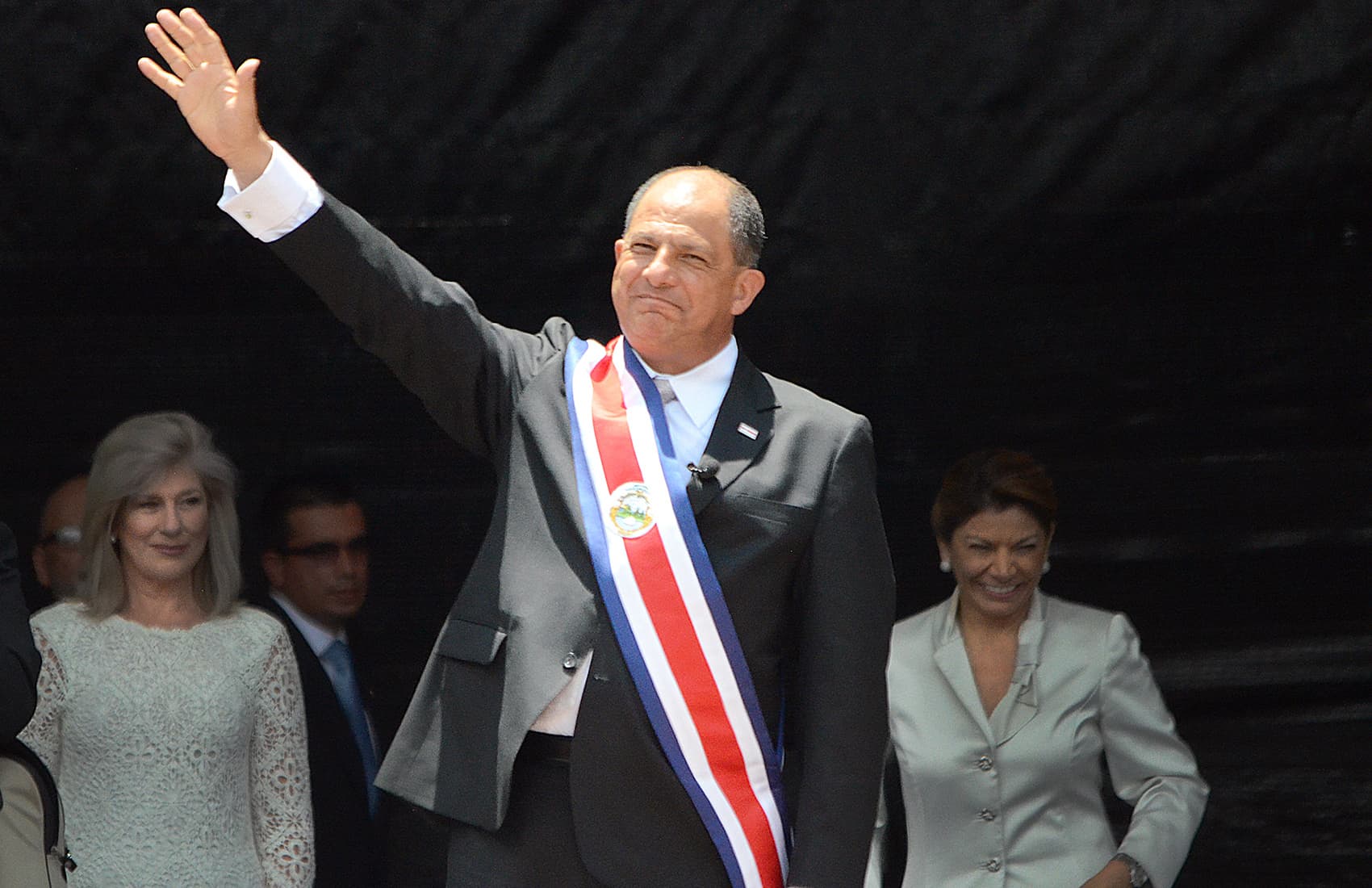President Luis Guillermo Solís remains popular with Costa Ricans four months after taking office, but most of those surveyed have a negative perception of his administration, according to a survey published Wednesday.
Solís, who won the April runoff election with 77.8 percent of the vote, stayed in the good graces of 66 percent of the electorate, according to the survey by CID-Gallup paid for by the Repretel television network.
Nevertheless, only 43 percent of those interviewed gave the president’s management a good grade since he took office on May 8. Some 55 percent said the new administration has done little or nothing to make good on its campaign promises.
According to the survey, Costa Ricans are concerned about economic issues, including rising gasoline prices, electricity rates and the exchange rate.
“Today, the economy is getting worse; they’re rising [the prices of] electricity, water, the price of food staples, and it’s a reality that Costa Ricans see and feel,” said National Liberation Party lawmaker Karla Prendas.
Presidency Minister Melvin Jiménez said the administration was pleased with the results and that the government is dealing with scare resources to make the changes Costa Ricans wanted to see.
Jiménez said the administration’s objectives are fighting extreme poverty, reducing inequality, sparking economic growth and generating quality job opportunities.
“Bit by bit, the public will start to see a change in the direction of the Solís administration in relation to the path of the last 30 years, when the country turned toward neoliberalism and started to dismantle [public] institutions in favor of privatizing services,” Jiménez said.
Solís, who raised the banner of change during his campaign, took office in May just as a public education teachers declared a strike over delayed salary payments. The strike consumed the efforts of the administration during its first month.
The fiscal deficit, a problem inherited from previous administrations, grew from 6 percent of gross domestic product to 6.7 percent in the proposed 2015 budget presented by the Finance Ministry. The 2015 budget, the largest ever proposed, has drawn strong criticisms. Moody’s Investor Services downgraded Costa Rica’s sovereign debt rating to junk status earlier this month.
The survey, which interviewed 1,228 people during the first week of September, has a margin of error of +/- 2.8 percent and a 95 percent level of confidence.
AFP contributed to this report.






